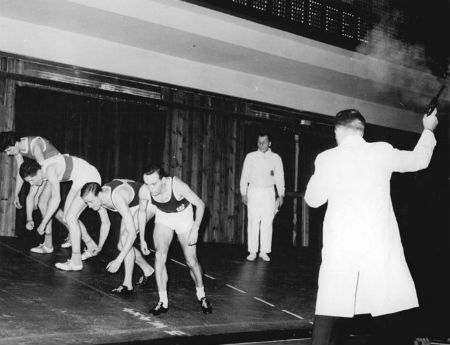Cisco, Technicolor Dinged for Gun-Jumping
The smarter way to stay on top of the multichannel video marketplace. Sign up below.
You are now subscribed
Your newsletter sign-up was successful

Technicolor’s acquisition of Cisco Systems’ consumer premises equipment unit isn’t off to the best of starts.
Brazil's competition authority, CADE, said it has fined Technicolor and Cisco Systems BRL 30 million (US $7.2 million) for “gun jumping" on the transaction prior to CADE’s approval.
Technicolor and Cisco Systems announced the closing of the $600 million transaction on November 20, 2015, in which Technicolor took over Cisco’s Connected Devices unit, which makes set-tops cable modems and gateways.
“The integration of the Cisco Connected Devices assets is starting immediately and the strategic collaboration agreement between Technicolor and Cisco is now moving into the implementation stage,” they said in the press release, adding that the transaction “has closed in all operating geographies, with the exception of Brazil, where closing remains subject to local approvals, and Colombia where Cisco Connected Devices’ operations have been carved-out pending a decision by the antitrust authority.”
CADE referenced that PR in its gun-jumping fine announcement, holding that excerpts from the release were “considered sufficient proof of gun jumping.”
"In addition, Cade discovered the incident on their own, having been notified by the company just three days after the publication of the press release," Cade reporting commissioner for the case, Paul Burnier, said, according to an English-translated version of the Cade announcement.
CADE said another question was raised by the “carve-out” agreement referenced by the companies – “ a contractual term with the intention to isolate the effects of a global transaction in jurisdictions where the transaction has not yet been approved by antitrust authorities,” CADE explained, adding that most antitrust authorities don't accept them because they usually aren't effective and are difficult to monitor.
The smarter way to stay on top of the multichannel video marketplace. Sign up below.
Cade said Cisco and Technicolor have agreed to pay the fine. Cisco and Technicolor have been asked for comment.
Update: A Cisco spokesman responded Thursday with this comment:
"Technicolor and Cisco acted in good faith when we isolated Brazilian operations during the transaction’s close, believing we could meet all global antitrust requirements and complete the transaction in Brazil when local regulatory approval was received. Both companies proactively reported the transaction close and carve out to CADE, and cooperated fully with CADE’s related investigation.
We acknowledge CADE’s announcement yesterday and accept the terms of the settlement. Both Technicolor and Cisco respect local law, and view the terms of the settlement as an additional commitment to our operations in Brazil."
Brazil, he added "is an important market for Cisco, and we are very committed to the market’s long-term success."
Update: Technicolor issued this statement on Friday (Jan. 22):
"The Brazilian market is extremely important to Technicolor. We are committed to being a good corporate citizen in this market. Based on the absence of antitrust issues with United States, Canada, Netherlands, Ukraine and Colombia, Technicolor was confident about receiving regulatory approval from Brazilian authorities.
"The decision by Technicolor and Cisco to carve out of Brazil – in order to respect and accommodate the Brazilian regulatory authority's timelines -- was made in good faith. It was publicly announced as well as reported to CADE. Technicolor accepts the terms of the settlement, and respects Brazilian laws."
Technicolor and Cisco announced the deallastJuly, noting that it also calls for them to create a strategic partnership that will allow both companies to develop and deliver next-gen video and broadband technologies, with a specific focus on Internet of Things (IoT) solutions and services. A long-term patent cross-licensing agreement is also factored into the deal.
Prior to the closing, Technicolor tapped former Alcatel-Lucent exec Luis Martinez Amago as president of its Connected Home division for the North American market, supporting Technicolor’s business with the region’s cable operators, telcos, satellite service providers and OTT players.
